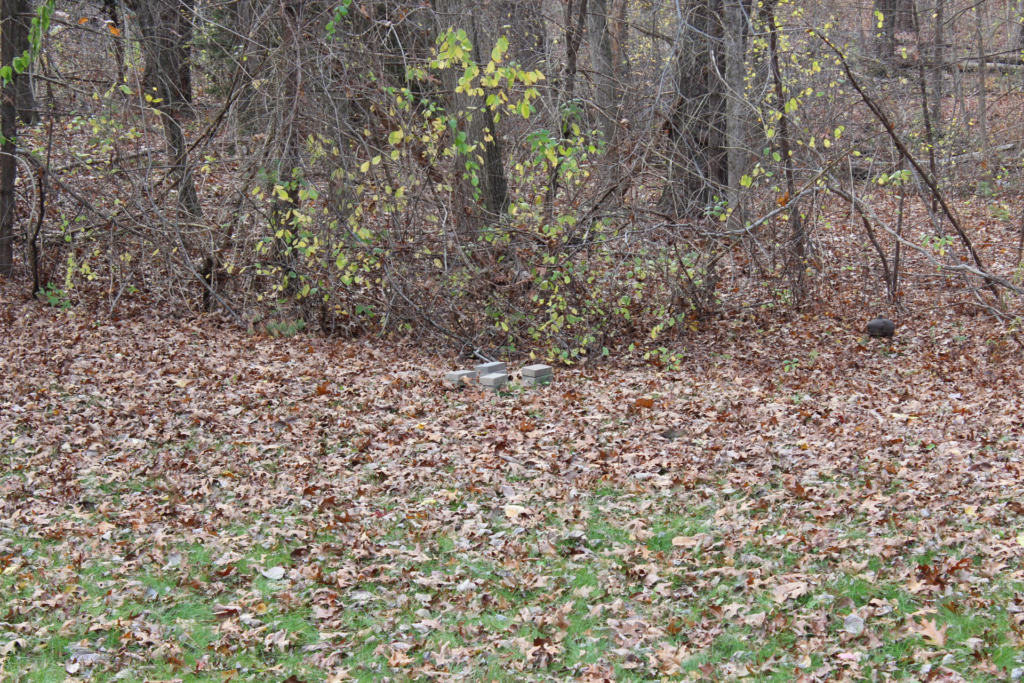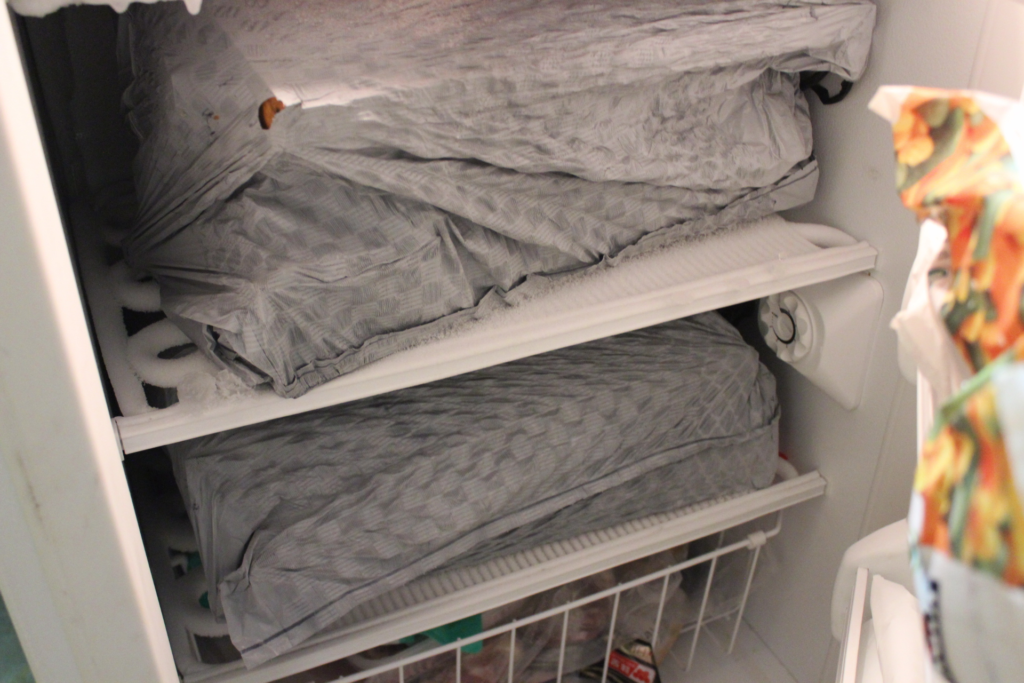
This occurred all a month or so ago, but I haven’t had the drive to sit down and go over things until now. I have some suspicions as to what happened, but no way to confirm.
We were gone from the house for about three weeks, and they seemed fine when checking before leaving. A check not long after we returned revealed only a handful of bees left, a pile of corpses on the bottom board, and frames with completely empty comb.
Typically in a case like this, the culprit is untreated varroa. Unlikely, as mite counts were low both pre and post the typical autumn oxalic treatments. Oxalic acid only kills those mites outside the capped brood cells of course, but the post-treatment alcohol wash count would have revealed a high mite count if that batch of workers happened to be harboring them in their cells.
There was no sign of other disease, no sign of parasitic or otherwise destructive invasive creatures such as web moths, mice, hive beetles, and so on. They clearly starved, as there was the telltale sign of adult bees dead inside cells, succumbing to starvation as they attempted to scavenge the last of the food they could find. Their honey stocks seemed sufficient prior to our trip. And the queen appeared to be performing well, as there looked to be plenty of brood present.
My best guess is something triggered a very late season swarm, with the departing bees filling up on honey prior to leaving, depleting the stocks slightly. The now weaker colony then fell prey to robbing from other nearby colonies, and starvation took care of the remainder. I base this on a few signs: I found what looks to be a few swarm cells (those that new queens are raised in) on one of the frames that I hadn’t pulled in the pre-trip check. While the hive had a good amount of bees present, I didn’t think it was enough to trigger a swarm yet, but they may have disagreed.
It’s difficult to estimate a population from a pile of corpses, but the bodies that remained didn’t seem to be enough to account for the numbers I saw while the hive was alive. However, if it was a slow death by starvation over a few weeks, those that died early may have been cleared out of the hive by the surviving workers, so it can’t be said to be the best method of estimation.
The dead showed some signs of having been fighting: a bee that died fighting can appear shiny, as the hairs are ripped off in combat, and quite a few of the bodies had such an appearance. But given they could have been dead for some time, not sure how decomposition would impact that. There was a notable amount of wax debris on the bottom board, which would be the result of robbing bees ripping off the caps of honey cells, which is the main thing leaning me towards this hypothesis. It wasn’t a large enough amount to be certain, but it’s possible the survivors were in the process of cleaning up the shavings before dying off as well.

In any case, it’s not a complete loss. Given the hive did not appear to fall victim to disease, I’m comfortable recovering all the frames with drawn comb and storing them in a freezer to kill off anything present. They can be reused in a future colony, which I will likely start again next spring, and will do a lot to kick start the hive and give it the best chance possible.
The more difficult thing has been a bit of emotional processing. There is of course the guilt over having not caught whatever may have caused this. While the bees have been categorized in my mind mostly as livestock, in that their lives and activities are largely an economic/resource based process (not that I have ever done anything than give away honey and wax, nor ever intend to do anything but), it’s still impossible to completely detach yourself emotionally from their care. Our relationship was that I was to provide care, safety, and shelter to them, while in exchange they would provide some of their food resources. And I failed to hold up my end of the bargain. Not that any formal contract was signed, but making yourself useful to the ecologically dominant species seems to be a rather winning strategy, so I presume the bees were amenable to the deal.
A common mindset for people is to assign a level of respect to life relative to its complexity and similarity to ourselves. An individual insect can be thought of as little more than a biological automaton, and is typically treated as such. However, the eusocial structure of bees and similar species such as ants does result in more complex and emergent behaviors, and it’s difficult to not elevate the collective superorganism as more ‘worthy’. Grappling with the rather arbitrary nature of these distinctions and behaviors has always been something lurking in the back of my mind, and the death of the colony has only served to return it to the forefront. This general line of thought is an often mocked attitude, since I believe it’s a common perspective of those who are vegetarian/vegan! Not that I’m attempting to state I intend to alter my diet or anything of the sort. I’m just not going to discard some examining of my personal philosophies just because it might be considered trite; a little self assessment is healthy at all ages to prevent the ossification of stupid shit.